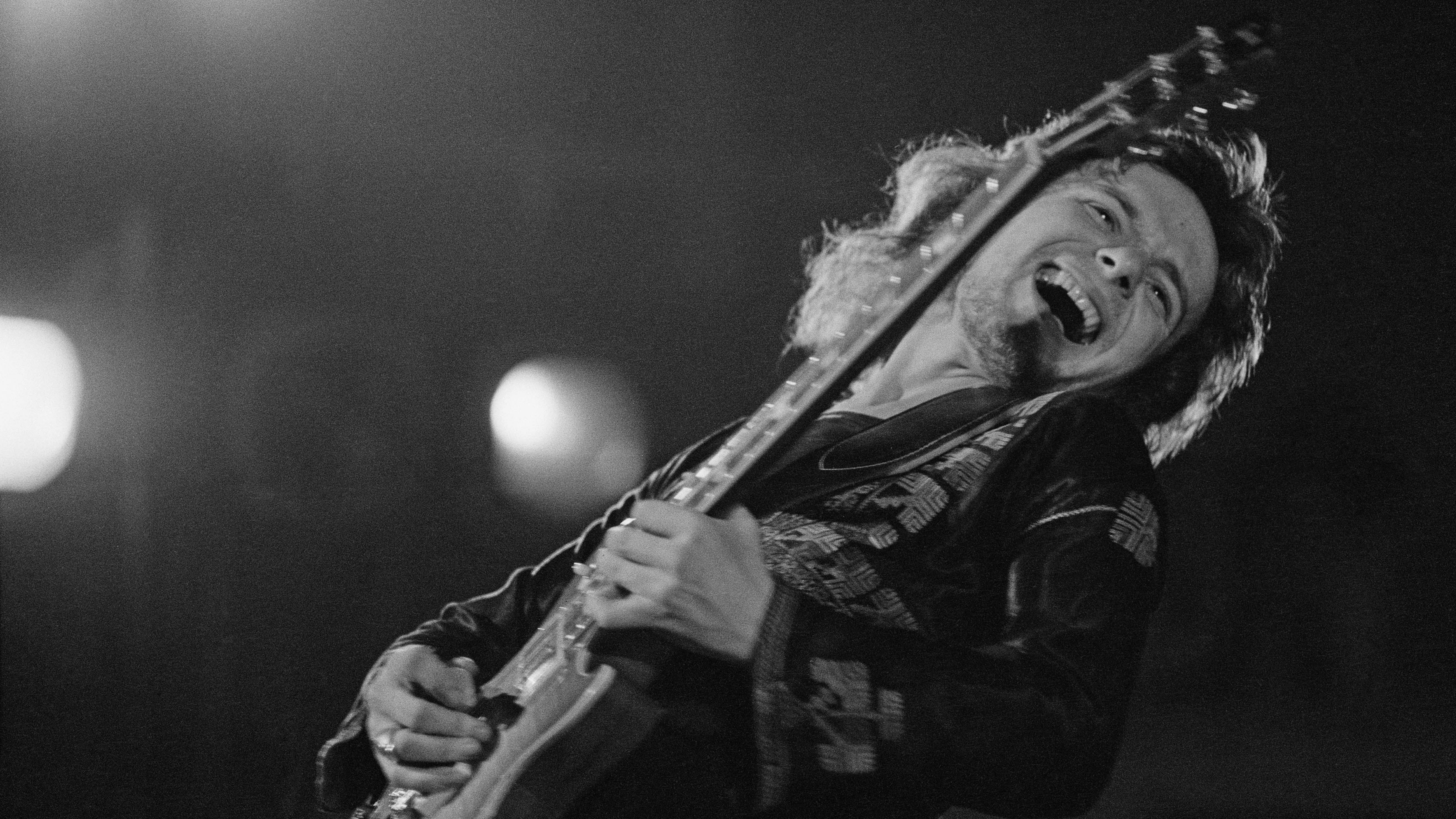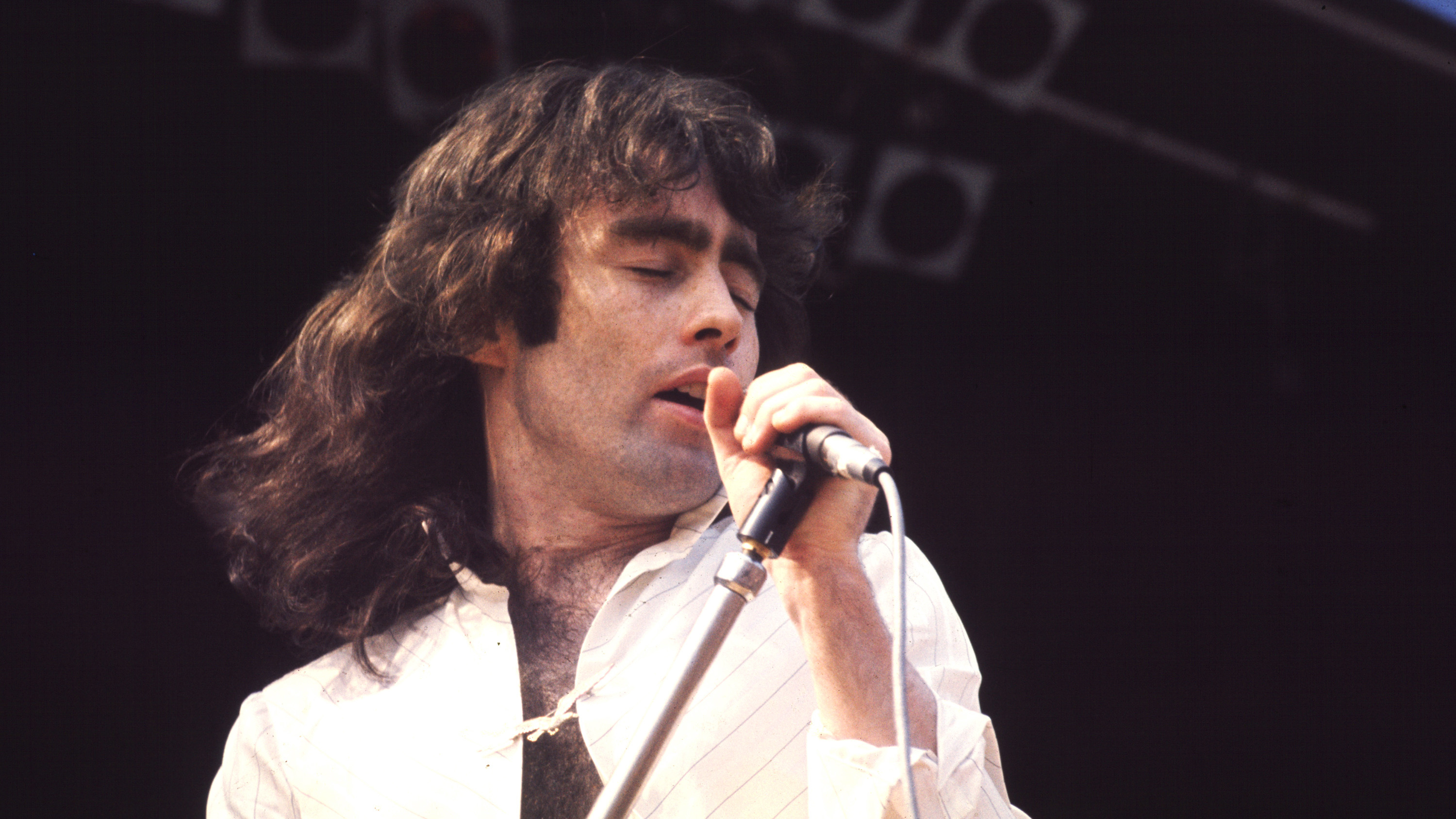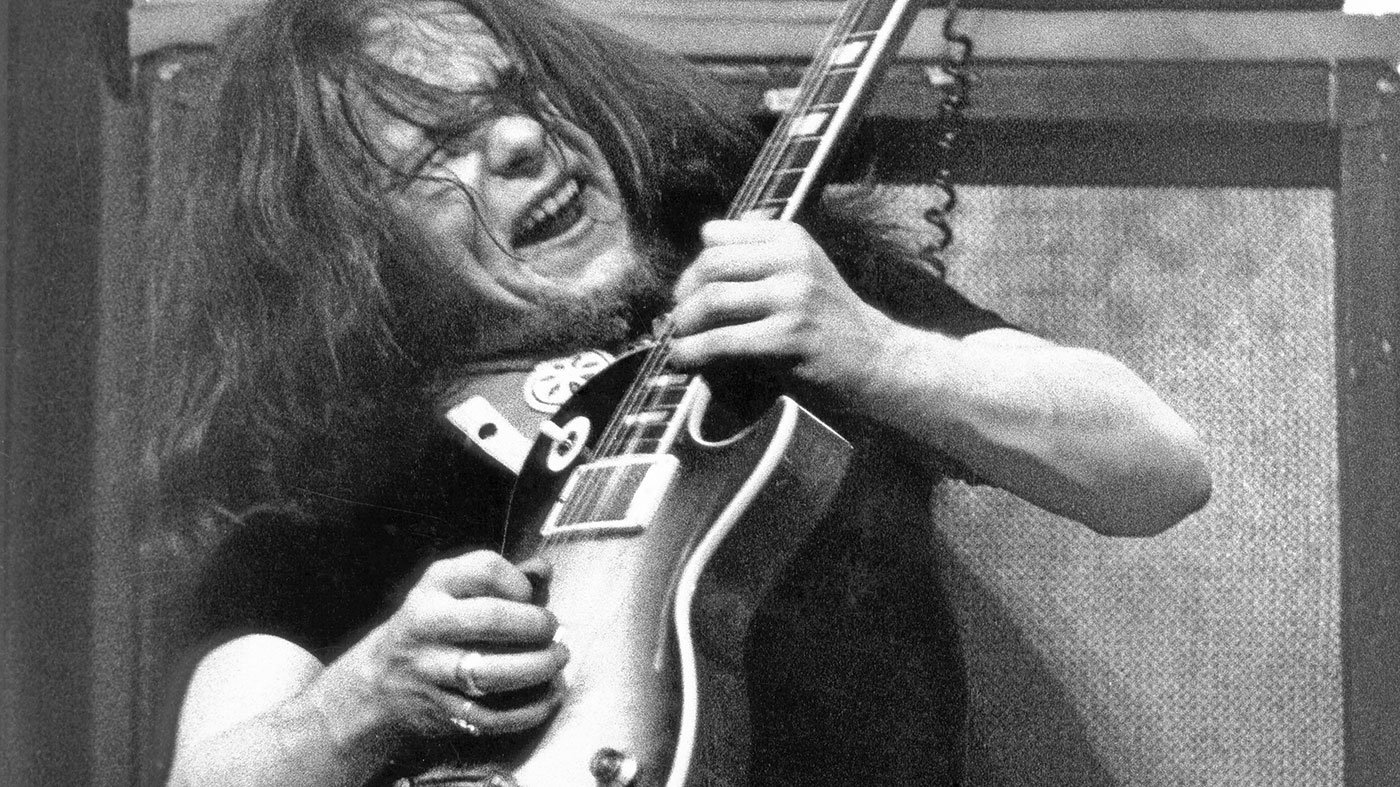5 songs guitarists need to hear by… Paul Kossoff with Free
Highlights of the short but sweet career of one of the greatest British blues-rock bands, and their tragically overlooked guitarist

Free was perhaps the perfect classic rock band. Four fine musicians, each the equal of the other, every member working at the top of his game, yet never overplaying or showboating. What this band did, it did with dedication and musical honesty, never hiding behind flashy licks but always delivering with total conviction.
With powerhouse drummer Simon Kirke, bass and piano prodigy Andy Fraser, Les Paul-wielding vibrato monster Paul Kossoff and one of the finest rock vocalists of all time, Paul Rodgers, Free should have been set for superstardom. Yet they scored only four UK top 10 hits in an all-too-brief career: Alright Now (1970), My Brother Jake (1971), Little Bit Of Love (1972), and Wishing Well (1973). Only Alright Now and The Stealer bothered the US Billboard chart, the former reaching #4 and the latter a disappointing 49.
He played every note as if it were his last
Between forming in 1968 and disbanding just five years later Free had released six studio and two live albums, split up, reformed and quit for good. Rodgers went on to form Bad Company (with Kirke) and The Firm (with Jimmy Page), while Fraser concentrated on side projects and songwriting, at which he had considerable success. He died of a heart attack in 2015. Kossoff did sessions, toured with John Martyn, and formed Back Street Crawler, a band that received only scant attention from record buyers. Sadly, Koss’s longstanding addictions spiraled and he died in 1976 from a pulmonary embolism, on a plane between LA and New York.
Kossoff’s guitar style was all feel and sincerity. He played every note as if it were his last, and while he stayed mainly pentatonic was never tempted to play fast, instead using melody, shape, and his huge, trembling vibrato to nail the point home.“I don’t like to show off,” he stressed. “I like to make sounds as I remember sounds that moved me. My style is very primitive but at the same time it has developed… I do my best to express myself and move people at the same time.”
While most of us recognise the band’s few hits (especially Alright Now, which charted in over 20 countries and received over three million US radio plays), there are gems throughout Free’s back catalog that should surprise and delight the uninitiated.
1. Fire And Water – Fire And Water (1970)

If you want a song that perfectly sums up Free’s laid-back feel and Kossoff’s beautifully understated but perfectly weighted guitar playing, then here’s as good a place to start as any. The track sounds so intimate it’s like the band is playing in your living room. There’s all but no reverb on anything so it’s all right there in your face – Kirke’s brilliant drums and Fraser’s bubbling Gibson EB-3 bass lines play perfectly against Koss’s simple rhythm work and fills.
As ever, Rodgers’ vocals are superb, his mix of rock swagger and gravelly blues phrasing belying his 20 years. Rodgers spoke of the track to us: "They were such good musicians that they elevated the song... each playing wonderfully on their instrument.”
Get the MusicRadar Newsletter
Want all the hottest music and gear news, reviews, deals, features and more, direct to your inbox? Sign up here.
When it comes to the solo, Kossoff overdubs a long, sustaining B note (12th fret, second string) then takes us on a musical journey, gradually climbing his Les Paul’s neck, building in height and intensity. His trademark bends and manic vibrato dragged every ounce of feel from these few simple notes. Like all the best Free songs the Rodgers and Fraser penned Fire And Water - the 1970 breakthrough album’s title track - shows a band of equals, sure of its strengths but always confidently restrained.
2. The Hunter – Free Live (1971)
Even after the worldwide success of Alright Now, Free continued to tread the boards in Britain’s pubs, clubs and town halls. And on stage is where they excelled. Of the band’s early touring Kossoff said, “The first year, we’d play 12 or 13 nights in a row all over England, with just a couple of nights off. Then go back out and do it again. That way you play for the people, develop musically on stage and build a good, honest following, not just hype.”

Albert King’s The Hunter was a live favourite. On this Free Live version Kossoff unleashed a ferocious salvo of opening licks to audience uproar. Actually written by Booker T & The MG’s for King’s 1967 album Born Under A Bad Sign, the lyrics are certainly of their time - “Ain’t no use to hide, ain’t no use to run, cos I’ve got you in the sights of my love gun” - and Rodgers delivers them with undisguised gusto. Kossoff’s Les Paul, meanwhile, peppers the verses with darkly distorted double-stops and perfectly judged fills.
He mines the depths to dig out every iota of intensity
The guitarist’s 36-bar solo embodies every aspect of his early style. Never afraid to work his way to the uppermost frets – not that easy on a Les Paul – again, he mines the depths to dig out every iota of intensity, to the obvious delight of the crowd. Kirke and Fraser are tight, never over busy and always in support of the two frontmen. Kossoff takes the track out with a reprise of the song’s intro. This is stirring stuff, the likes of which we’ll never see again.
3. Be My Friend – Highway (1970/1972)
While sounding like early Whitesnake (a band that didn’t form until eight years after this was released), Kossoff’s rhythm guitar licks and fills wouldn’t be out of place in a Hendrix ballad or a modern John Mayer blues. Always one of Koss’s favourite Free songs, he preferred this more serious approach to what he saw as the more frivolous hit-chasing sound of some other numbers, Be My Friend is a stylised blues in B flat minor. Although a simple song, it sounds a touch more ‘produced’ than many Free tracks, with moody overdubbed keyboard strings and piano.
As the song builds to a crescendo, picking up in both tempo and intensity, Kossoff plays a beautifully restrained solo on his Les Paul’s neck pickup, his minor scale runs weaving deftly between Fraser’s overdubbed piano licks and thudding Gibson bass, Kirke’s drums pounding out a strident beat over an otherwise subtle piece. As the song fades and Kossoff’s solo concludes, he reprises his trademark ‘second string bent up to the first’ lick at the 16th fret, his musical personality stamping a perfect climax on the song.
4. Come Together In The Morning – Heartbreaker (1972)
Koss’s vibrato had changed from the violent wobble to a slower and more controlled feel
While it sounds like a desperate love song to a romantic partner, the lyrics to Come Together In The Morning were actually Rodgers’ ballad to Kossoff, who was beginning to fall apart around the time of recording Heartbreaker. The band had to call in guitarist Snuffy Walden to handle some of the parts, although on Come Together In The Morning it’s clearly Kossoff.
Koss’s vibrato had changed from the violent wobble to a slower and more controlled feel. “My vibrato has taken a long time to sound mature, and it’s taken a long time to reach the speed that I now have,” he said in 1976. “I trill with my first, middle, and ring fingers and bend chiefly with my small finger.”
In fact Kossoff’s approach on this is not unlike his playing on Wishing Well, with its slower and more controlled vibrato. His solo is perfectly paced, but also bluesier than usual and a touch psychedelic – sort of Peter Green meets Albert King playing Purple Haze on a Strat, but with Koss’s signature bends firmly in place. There’s subtle fuzz and a Leslie style wobble to the tone, too.
Rodgers, Kossoff and Fraser swap vocal, guitar and organ licks on the fade-out to finish a song that’s simple yet sophisticated, laying down a benchmark for almost every rock band that came after them. Blues-rock balladry at its best.
5. My Brother Jake – single (1971)

While this song nestles among our five great Free/Kossoff songs, it deserves a place on any ‘greatest pop-rock songs ever’ list. Penned by Fraser and Rodgers it gave the former a chance to show off his excellent piano chops. But while the song bounces jauntily along, the lyrics tell a darker story. Fraser has said it was about an old friend called Horace, but many see it as clearly referring to his and Rodgers’ ailing bandmate, Kossoff. “My brother Jake, have you thought about changing your ways...” My brother Jake, head down, it’s scraping the ground...” “Your candle is burning, your wheels are turning...” and so on.
Ailing or not, Kossoff plays delightful rhythm throughout the song, which Fraser set in the home key of E. Kossoff often used unusual chord shapes - most likely gleaned from his six years of classical guitar training – like a full C-shaped barre chord B/E at the 11th fret, or a 9th-fret F#m7 over Fraser’s B bass to create a gospel style B11. It’s so measured and ‘right’ against Fraser’s beautiful piano work, and again shows four musicians in perfect harmony. Rodgers’ vocal is, as always, sublime.
My Brother Jake is unlike anything else that Free recorded
There’s no solo as such, but Kossoff’s Strat (it was a Strat in the available film footage) delivers tasty clean neck-pickup fills during the early verses, switching to Hendrix-style licks and runs for the bridge to perfectly complement what Fraser is doing on piano and bass. Towards the finish the clean guitars give way to typical top-of-the-neck bends drenched in distortion and reverb. Fabulous stuff!
My Brother Jake is unlike anything else that Free recorded. Yet it’s clearly a band performance with probably the rhythm track played live and overdubs added later. But, you know, a song like this is almost too good for a mere music journo to unpick. So why not sit back and listen, marveling at what these four guys, all between 18 and 21 years of age and one of them seriously unwell, pulled out of the hat more than half a century ago.
“Every note counts and fits perfectly”: Kirk Hammett names his best Metallica solo – and no, it’s not One or Master Of Puppets
“I can write anything... Just tell me what you want. You want death metal in C? Okay, here it is. A little country and western? Reggae, blues, whatever”: Yngwie Malmsteen on classical epiphanies, modern art and why he embraces the cliff edge









